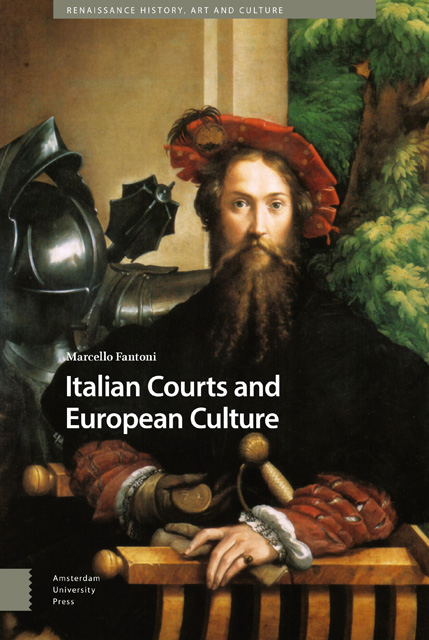2 - Historical Development
Published online by Cambridge University Press: 10 January 2023
Summary
Before speaking of courts, we must speak of the principalities. In particular, we must consider the transition from republics to signorie. A diachronic mapping of thirteenth–sixteenth century Italy reveals an incessant swinging of urban governments from one type of regime to another. Instead of a crystallized picture, we find a fluid political landscape. Since the Duecento (‘thirteenth century’) we have rarely had diametrically contrary regimes and not even a gradual transition from pure republicanism to complete tyranny, but rather unsteady signorie juxtaposed and alternating with precarious Communes. Signorie were often interludes of Communes, and communal regimes were, in turn, interludes of many signorie. In some cases, it is hard to establish if they were genuine signorie. Also, in many cities, the relations between politics and religion had an incestuous quality and, in most cases, a signoria was established on the basis of a pact between Commune and lord. The titles or offices attributed to the latter were extremely varied, and often the constitutional formulas were (for us) an incongruous mixture of republican statutes and autocratic prerogatives. For these cases historians of the Middle Ages have coined the definitions of princely republics.
Holding absolute authority, all lords were sovereigns in their own territory. Many were subject to vassal limitations and bonds of loyalty toward monarchs more powerful than they were. Many of them were superior to an undergrowth of collateral branches of their families and vassals of various kinds. Many were little more than ephemeral, only some of them managed to make their power hereditary, and very few established lasting dynasties. There is a bit of everything: secular dominions and ecclesiastic powers, and different titles and degrees of sovereignty. The winding trajectories of many major and minor individuals tell us much of the magmatic nature of politics. This, too, should be taken as a sign of the peculiar nature of political categories in the period. Some were mere warlords, some received a humanistic education, others were victims of the political instability in Italy, while still others headed feudal houses. Many did not achieve their ambitions, and many built principalities that evaporated leaving almost no trace of their presence. Only a few impressed their mark on their towns.
- Type
- Chapter
- Information
- Italian Courts and European Culture , pp. 25 - 30Publisher: Amsterdam University PressPrint publication year: 2022

